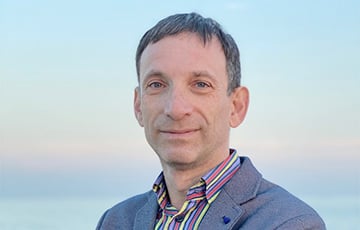Kursk Anomaly
5- Vitaly Portnikov
- 19.08.2024, 11:03
- 17,454

Putin has found himself in a trap.
If the Ukrainian Defence Forces raid into Kursk region of the Russian Federation had not happened, it would have been worth describing in some anti-utopia to prove the ineffectiveness and rottenness of Putin's state. Everything could be included in this anti-utopia. Even a story about how the Russian authorities, in the tenth year after the outbreak of an armed conflict with a neighbouring country - I'm not even reminding you about the two and a half years of the big war - did not bother to secure its borders with that very country.
And the description of how for several weeks Putin and company didn't really understand what to do when your sovereign territory is invaded - and didn't think of anything better than to declare an anti-terrorist operation, as if a group of extremists had seized a local house of culture in Sudzha, not the army of another country occupying part of Russia's territory. And that almost two weeks after the invasion began, the Russian president decided to go on a state visit to Azerbaijan - perhaps to consult on how to restore territorial integrity, or perhaps simply because he needed to demonstrate his self-confidence in such a simple way. And, of course, there would be a place for the population in this anti-utopia. The population of the occupied territories, complaining to the Ukrainian military about the indifference of the Russian authorities, and the population of the rest of Russia, busy with their usual problems and seemingly not noticing that part of the country's territory is no longer controlled by the Kremlin.
There is no patriotic upsurge, no queues at military enlistment offices or at least MPs landing in Kursk Oblast. Well, Sudzha is Sudzha. They know better up there. Ukrainians are in Kursk region, the president is in Baku, we are in Sochi, life goes on.
Naturally, if I had published such an anti-utopia even a week before the Ukrainian invasion of Russia, the majority of readers would have accused me of expected Russophobia. After all, a sane person should have had no doubts that the Russian border is secure, the population is filled with patriotic sentiments, and that the president will personally supervise the liberation of his native land, and won't be having tea with his Azerbaijani colleague.
Yet, since I am not an entirely reasonable person, I still had my doubts that the Russian state was working and that the Russian patriotic society, full of righteous anger, exists. And those doubts have been confirmed. They were confirmed precisely because the events in Kursk region are not an anomaly at all.
It is a regularity.
This course of events was ensured by the Russian leadership, its inability to calculate the possible consequences of its actions and unwillingness to put itself in the place of the enemy, its arrogance and self-confidence. This course of events was also dictated by that Putin deliberately turned the war into a new normal for Russians. After all, if you decide to annex the territories of a neighboring country even before you establish real control over these territories and then wage for this senseless real control an equally senseless war for years, then why should Russians be particularly worried about the territorial integrity of the state? Russians have already gotten used to that they can no longer show the state borders of their own country on the map. That Russia includes, for example, Zaporizhzhia or Kherson regions, and Ukrainian flags fly in these regional centers, and the residents of these regional centers do not at all think that they are Russians. So if Russia controls only part of Zaporizhzhia region, why can't it control part of Kursk or Belgorod regions? What's the difference? Why should we be upset about the loss of control over an unknown regional center, but not about the loss of control over Kherson? And the government itself cannot explain the differences to society. Because in reality the government should have said that Donbass, Kherson, Zaporizhzhia or Crimea are stolen territories, they are not Russia at all, we just called them that to make it easier to fight with Ukraine and to steal something there. Yet Kursk region is truly Russian land, so liberating it is a matter of state prestige and security. But a thief is a thief so as not to separate his own and someone else’s. That is why Putin is literally torn apart by the impossibility of really assessing the situation, by the need to continue lying, by the realization that he has fallen into the same political and legal trap that he has been building for Ukraine for years.
And his falling into this trap is also not an anomaly, but a natural pattern of the unjust, deceitful and vile war he started.
Vitaly Portnikov, Radio Svaboda











